Marie Sano
Computational ghost imaging using deep learning
Oct 19, 2017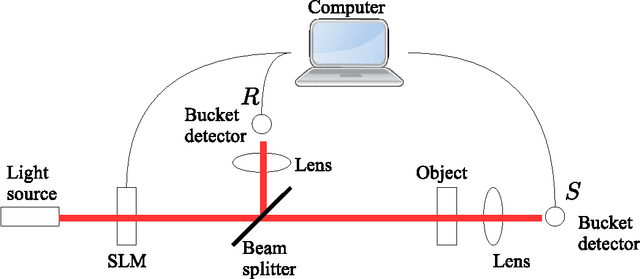


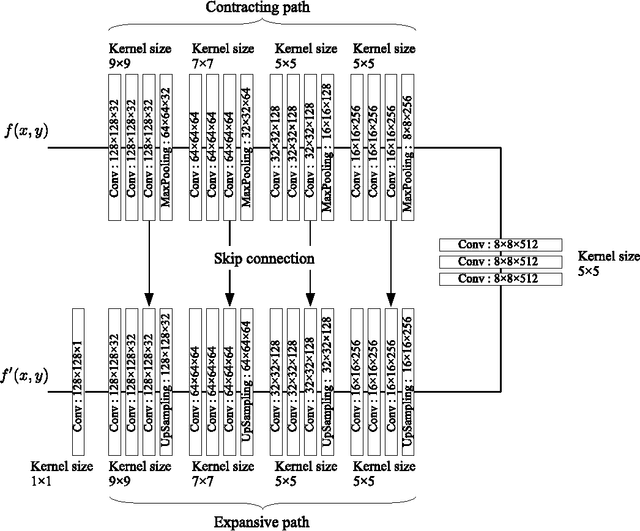
Abstract:Computational ghost imaging (CGI) is a single-pixel imaging technique that exploits the correlation between known random patterns and the measured intensity of light transmitted (or reflected) by an object. Although CGI can obtain two- or three- dimensional images with a single or a few bucket detectors, the quality of the reconstructed images is reduced by noise due to the reconstruction of images from random patterns. In this study, we improve the quality of CGI images using deep learning. A deep neural network is used to automatically learn the features of noise-contaminated CGI images. After training, the network is able to predict low-noise images from new noise-contaminated CGI images.
Deep-learning-based data page classification for holographic memory
Jul 02, 2017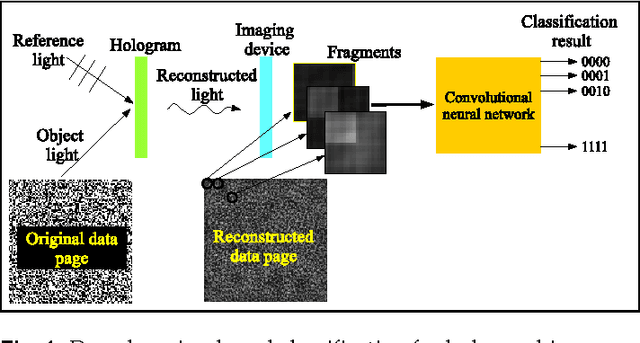
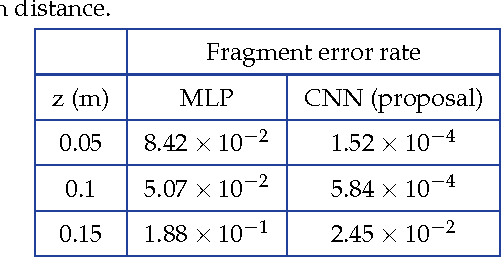
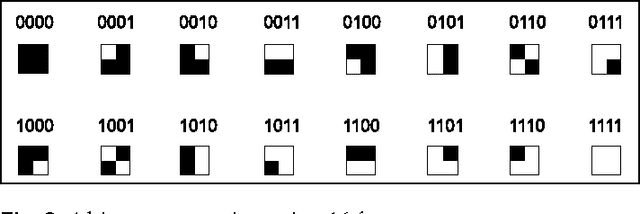
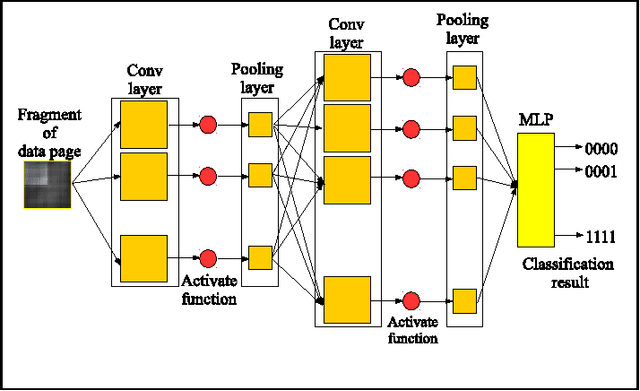
Abstract:We propose a deep-learning-based classification of data pages used in holographic memory. We numerically investigated the classification performance of a conventional multi-layer perceptron (MLP) and a deep neural network, under the condition that reconstructed page data are contaminated by some noise and are randomly laterally shifted. The MLP was found to have a classification accuracy of 91.58%, whereas the deep neural network was able to classify data pages at an accuracy of 99.98%. The accuracy of the deep neural network is two orders of magnitude better than the MLP.
 Add to Chrome
Add to Chrome Add to Firefox
Add to Firefox Add to Edge
Add to Edge